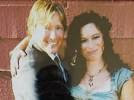Although it was first screened on the National Geographic
channel, I watched “Brothers in War” on Netflix just recently. I highly recommend it. What can I say? It’s graphic, disturbing and it will touch
your heart. It brought tears to my
eyes. Some of you will remember the
Vietnam War. For some of the younger
folks, it’s just a much maligned, misadventure by our American military.
That said, “Brothers in War” is a very personal
account from those actually there. It’s
history. Everyone should watch it.
“Through gripping first-person accounts and digitally
remastered archival footage, including the soldiers’ own home movies and
personal audio tapes, Brothers in War recounts the harrowing combat experiences
of the men of Charlie Company — one of the last American combat infantry
companies to be drafted, trained and sent to fight together in Vietnam.”
I served in Southeast Asia during the war (’68 – ’70). But, I must admit, with some residual feelings
of guilt, my experiences were nothing like those of Charlie Company.
I was a Team Commander for the First Mobile Communications
Group (USAF). Our motto was ‘First In, Last
Out.’ Although the First Mobile was
stationed in the Philippines, our mission was to deploy and set-up tactical
communications equipment and navigational aids, as well as conduct necessary
training for the subsequent, long-term operators - often members of the Army or
Marines. When the Marines or Army were
finished with the equipment, or it had been destroyed, we would again deploy to
recover what was left. The equipment
often contained classified equipment and codes.
Some members of the First Mobile spent time in extreme combat
assignments, including Khe Sanh. I did
not. I was lucky.
My experiences, my hardships were nothing compared to Charlie
Company. While at Chu Lai, I did
experience a Viet Cong ‘rocket’ attack.
The Viet Cong efforts were, generally speaking, remarkably
inaccurate. They did score an accidental
direct hit on the base PX (photo above), but it was at night and there were no casualties. Marine Corps’ spotters, during the hours of
darkness, watched the jungle hillside which was some distance from the
base. When they saw a flash, they would
immediately hit the siren. Those of us
sleeping in the base hooches had a few seconds to sprint to the nearest bunker
– usually right outside the door – before the rocket hit. American helicopters were scrambled to
‘light-up’ the general area from which the rocket originated – efforts that
were almost always unproductive.
Personally speaking, an incoming rocket, or the far more frequent false
alarms, did disrupt an otherwise sweat-drenched effort to sleep. But, it was a small sacrifice compared to Charlie
Company soldiers’ sleepless nights in a mud-hole.
One Vietnam experience has stayed with me. I once hopped an ‘in country’ transport on a
C-130 moving Marines to their new base – from which they would be
deployed. The pilots and Load Master
were Air Force; but, other than myself, the rest were young Marines. I sat in the back in the jump-seats with this
very solemn group of young men, all Marines.
Nobody spoke. They looked so
young. God, they looked young. As they say, wars (at least in those days
with the military draft in place) were not fought by ‘John Wayne types.’ I wanted to say something to the young man
next to me, but what could I say? Good
luck? I don’t think so.
Back to the documentary, Charlie Company took considerable
casualties – killed and wounded. Upon
completion of their one year tour, they (what was left of the original contingent)
were flown back to the States. When they
arrived in the U.S., happy to finally be home and to be alive, they were met by
anti-war demonstrators who cursed them, threw things at them and spit on them.
They were just boys – often draftees. They had nothing to do with the politics of
the Vietnam Conflict. And did you know
that some were actually ‘conscientious objectors,’ who acted as medics and
carried no weapons – but, nonetheless, died trying to save others.
If you were one of those demonstrators, how do you live with
yourself – the shame of it? Well, you
might say, ‘I was young, perhaps a little thoughtless, but just joined a crowd
of my friends and peers.’
Sorry, I don’t buy it. Who would buy it? Your wife? Your kids? Your grand kids? I doubt it.
PS: Incidentally, the
above documentary was based on the book by Andrew Wiest, ‘The Boys of
’67.’ A good book if you care to read
more about these young heroes.
True Nelson








